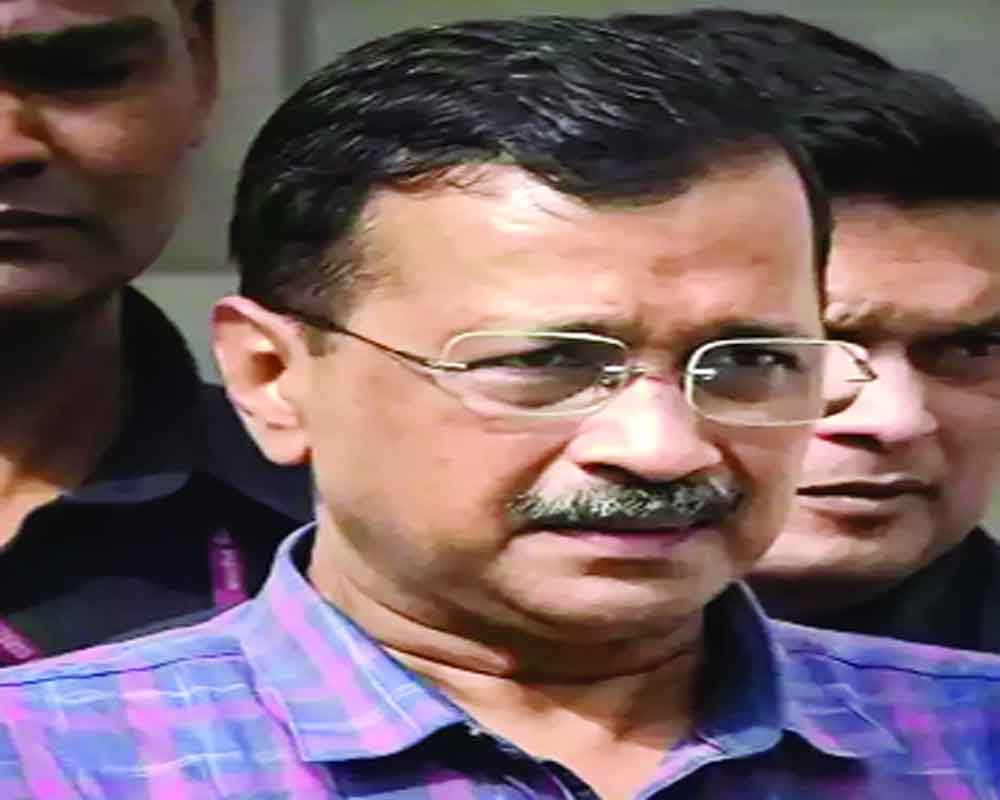Delhi Chief Minister Arvind Kejriwal has filed his response to the Enforcement Directorate's affidavit in the Supreme Court, saying his arrest is a classic case of how the ruling party-led Central Government has misused the ED and the PMLA to crush its biggest political opponent -- the Aam Aadmi Party and its leaders.
Kejriwal said the mode, manner and timing of his arrest just before the Lok Sabha elections when the Model Code of Conduct had come into play, speaks volumes about the "arbitrariness" of the agency.In a rejoinder to the Enforcement Directorate's reply affidavit filed on his petition challenging his arrest in the case, Kejriwal has alleged that ED “illegally picked up” a sitting Chief Minister five days after the general elections were notified and the Model Code of Conduct was put in place. “During an election cycle when political activity is at its highest, the petitioner's illegal arrest has caused grave prejudice to the petitioner's political party, and will provide the ruling party at the Centre an unjust upper hand in the on-going polls,” Kejriwal has said.
“The record would reveal that each and every summons that have been issued to Arvind Kejriwal have been duly responded. In the instant case, the ED has not only been opaque and dictatorial in its approach but also guilty of suggestio falsi (suggesting falsehood) & suppressio veri (suppressing truth).”
Terming the ED's claims bogey, based on blatant flasehoods and have no ground, Kejriwal in his reply said a cumulative reading of the ED’s stand in its reply would expose the bogey and blatant falsehood in the conduct of its proceedings.
The Aam Aadmi Party (AAP) leader said the ED, in its reply affidavit filed in the apex court, has said that one of the reasons which necessitated his arrest was that he did not remain present before the investigating officer (IO) despite being summoned nine times. Kejriwal said the ED has said in its reply that in such a case, the IO was justified in forming an opinion that custodial interrogation would lead to "a qualitatively more elicitation orientated" questioning of the accused.
"The aforementioned tenor, text and contents of the reply leave no manner of doubt that the ED has acted in a most highhanded manner in a gross affront to the due process of law," he said.
Kejriwal claimed that the ED has never spelt out the alleged non-cooperation by him. "What was the requirement in not calling the petitioner (Kejriwal) either through an authorised agent or seeking information or documents from him in writing or through a virtual mode and insisting on his presence physically in person, is not forthcoming," he said.
“There is no detail, no correlation, no involvement of Arvind Kejriwal shown to have existed for commission of 37 offences under Section 3 on the basis of such statement. No proof of even any cash payment was given. There exists no proof or material demonstrating that the AAP received funds or advanced kickbacks from the South group, let alone utilizing them in the Goa election campaign. Not a single rupee was traced back to the AAP, and the allegations put forth in this regard are devoid of any tangible evidence, rendering them vague, baseless without any corroboration. There is no link whatsoever established by ED to claim that an amount of Rs 45 Crores was transferred by South group as advanced kickback which was then utilized by AAP in Goa elections,” the rejoinder reads.
Furthermore, the Chief Minister has said there is not even a single averment alleging the destruction of evidence of any kind by him.
Kejriwal has alleged that ED has coerced witnesses to give statements against him and that the only objective of ED to take action against Magunta Srinivasulu Reddy and his son, Raghav Magunta, was to pressurize and coerce them to falsely implicate the Chief Minister. In its reply affidavit filed in the apex court earlier this week, the ED has claimed that Kejriwal is the "kingpin and key conspirator" of the excise policy scam and the arrest of a person for an offence based on material can never violate the "concept of free and fair elections".


























